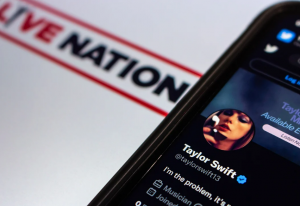In a significant legal development, Live Nation, the parent company of Ticketmaster, is facing a monumental antitrust lawsuit filed by the US government and 30 state and district attorneys general. This lawsuit, lodged in New York, alleges that Live Nation has exploited its dominant position in the entertainment industry to the detriment of concert attendees across the nation.
The crux of the matter revolves around accusations that Live Nation’s practices have stifled competition, resulting in various issues such as subpar customer service, convoluted pricing structures, exorbitant ticketing fees, and limitations on ticket resales. Beyond seeking financial reparations, the lawsuit aims for a substantial overhaul of Live Nation’s operations, potentially heralding significant transformations in the live events landscape.
The allegations against Live Nation are grave, with prosecutors asserting that the company orchestrated a scheme to monopolize the ticketing and live events sector. This purportedly involved entering into exclusive agreements with major venues, effectively shutting out competitors and controlling the distribution of tickets for events nationwide.
This legal action follows years of criticism directed at Live Nation, notably in the wake of incidents like the Ticketmaster glitches during Taylor Swift’s “Eras” tour in 2022. These events highlighted what many critics perceive as a dearth of competition in the industry, fueling widespread discontent among fans and artists alike.
Despite Live Nation vehemently refuting the allegations as “baseless,” contending that the lawsuit sidesteps genuine fan concerns in favor of legal technicalities, the news has had a tangible impact on the company’s stock, plummeting by 5% post-lawsuit announcement.
Musicians have also weighed in on the controversy, with some expressing dissatisfaction with Live Nation’s practices. Taylor Swift herself took to Instagram to rebuke the company following the Ticketmaster debacle, underscoring its repercussions on both artists and fans.
This isn’t Live Nation’s first brush with scrutiny over its business practices. The company’s 2010 merger with Ticketmaster raised antitrust concerns, with apprehensions about the emergence of a monopoly in the live events domain. Now, over a decade later, those apprehensions appear to have materialized, prompting regulatory intervention.
The lawsuit has garnered widespread support from antitrust advocates, viewed as a long-awaited response to Live Nation’s dominance. It also mirrors a broader initiative by the Biden administration to intensify antitrust enforcement and address consolidation issues across various sectors.
According to the lawsuit, Live Nation’s influence extends well beyond ticketing, with the company directly managing numerous artists and exercising control over a significant portion of concert promotions and venues in North America. Through Ticketmaster, Live Nation also wields considerable sway over primary ticketing for the majority of major concert venues.
The involvement of numerous states and districts underscores the widespread apprehension regarding Live Nation’s practices. Letitia James, New York Attorney General and one of the lead plaintiffs, has advocated for a “new era” in the live events sphere, underscoring regulators’ resolve to hold Live Nation answerable for its conduct.
As the legal battle unfolds, fans and industry observers will be closely monitoring its implications for the future of the live events market. While the outcome remains uncertain, one thing is evident: Live Nation’s era of unfettered dominance may be drawing to a close.
The Markets Watch

